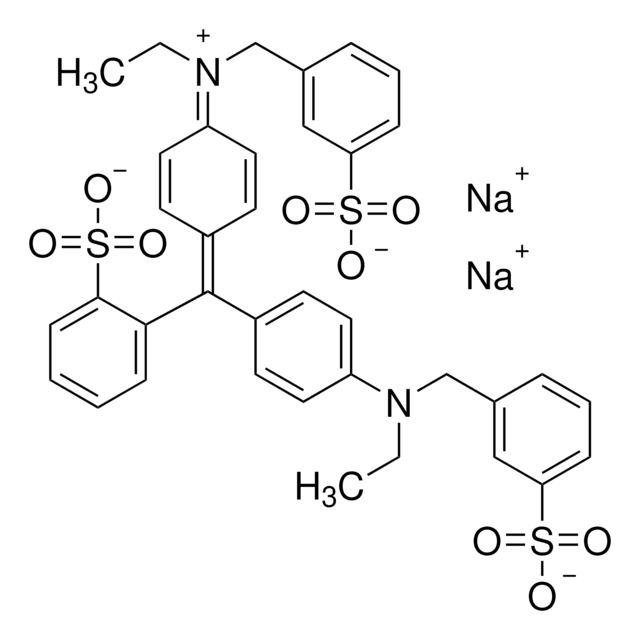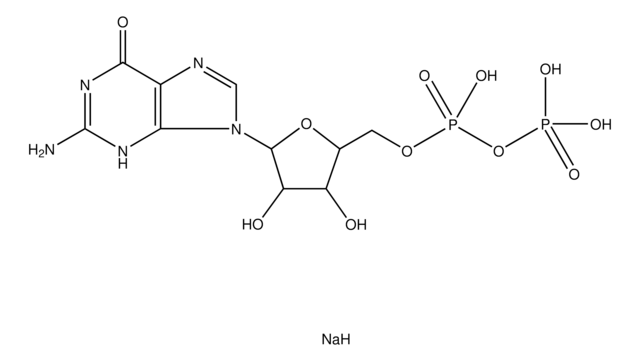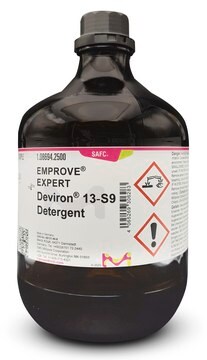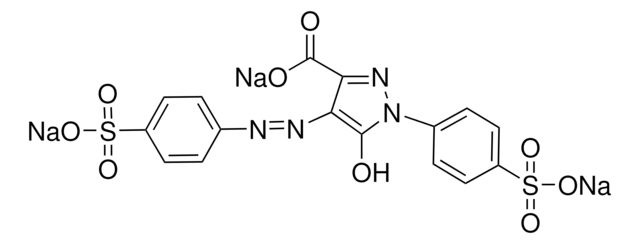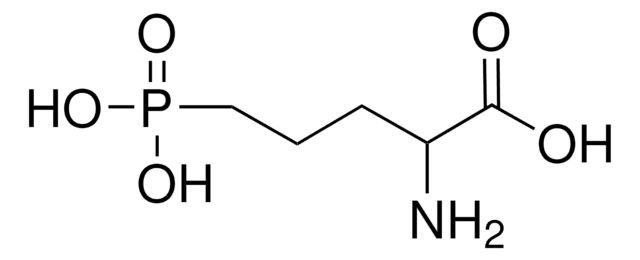A1420
Ames′ Medium
With L-glutamine, without sodium bicarbonate, powder, suitable for cell culture
Se connecterpour consulter vos tarifs contractuels et ceux de votre entreprise/organisme
About This Item
Code UNSPSC :
41161501
Nomenclature NACRES :
NA.75
Produits recommandés
Niveau de qualité
Forme
powder
Technique(s)
cell culture | mammalian: suitable
Composants
glucose: 1.081 g/L (Dextro)
NaHCO3: no
L-glutamine: 0.073 g/L
Conditions d'expédition
ambient
Température de stockage
2-8°C
Description générale
Ames′ Medium has been formulated to support retinal tissue in relatively short-term culture. It is suitable for maintaining central nervous system tissue in vitro.
Application
Ames′ Medium has been used to maintain rat/mice/macaque monkey eye for the isolation of retina.
Quantité
Formulated to contain 8.8 grams of powder per liter of medium.
Reconstitution
Supplement with 1.9 g/L sodium bicarbonate.
Code de la classe de stockage
11 - Combustible Solids
Classe de danger pour l'eau (WGK)
WGK 2
Point d'éclair (°F)
Not applicable
Point d'éclair (°C)
Not applicable
Faites votre choix parmi les versions les plus récentes :
Déjà en possession de ce produit ?
Retrouvez la documentation relative aux produits que vous avez récemment achetés dans la Bibliothèque de documents.
Les clients ont également consulté
Antoine Chaffiol et al.
Molecular therapy : the journal of the American Society of Gene Therapy, 25(11), 2546-2560 (2017-08-16)
The majority of inherited retinal degenerations converge on the phenotype of photoreceptor cell death. Second- and third-order neurons are spared in these diseases, making it possible to restore retinal light responses using optogenetics. Viral expression of channelrhodopsin in the third-order
Qiuju Jiang et al.
IEEE transactions on neural systems and rehabilitation engineering : a publication of the IEEE Engineering in Medicine and Biology Society, 26(5), 969-976 (2018-05-13)
Significant progress has been made recently in treating neurological blindness using implantable visual prostheses. However, implantable medical devices are highly invasive and subject to many safety, efficacy, and cost issues. The discovery that ultrasound (US) may be useful as a
Shijun Weng et al.
Journal of biological rhythms, 24(5), 391-402 (2009-09-17)
Intrinsically photosensitive retinal ganglion cells (ipRGCs) project to the suprachiasmatic nucleus (SCN) and are essential for normal photic entrainment of global circadian rhythms in physiology and behavior. The effect of light on the central clock is dependent on circadian phase
Kasey Rose et al.
Molecular neurodegeneration, 12(1), 28-28 (2017-04-13)
Light exposure triggers movement of certain signaling proteins within the cellular compartments of the highly polarized rod photoreceptor cell. This redistribution of proteins between the inner and outer segment compartments affects the performance and physiology of the rod cell. In
Michael B Manookin et al.
The Journal of neuroscience : the official journal of the Society for Neuroscience, 28(16), 4136-4150 (2008-04-18)
Cone signals divide into parallel ON and OFF bipolar cell pathways, which respond to objects brighter or darker than the background and release glutamate onto the corresponding type of ganglion cell. It is assumed that ganglion cell excitatory responses are
Protocoles
Powdered media and salt mixtures are extremely hygroscopic and should be protected from atmospheric moisture.
Notre équipe de scientifiques dispose d'une expérience dans tous les secteurs de la recherche, notamment en sciences de la vie, science des matériaux, synthèse chimique, chromatographie, analyse et dans de nombreux autres domaines..
Contacter notre Service technique